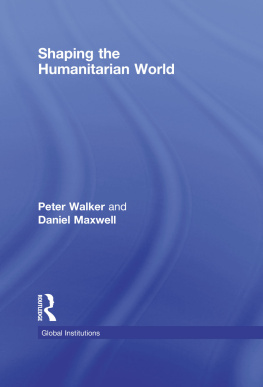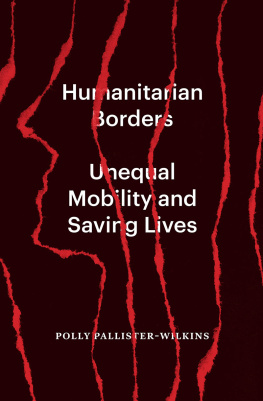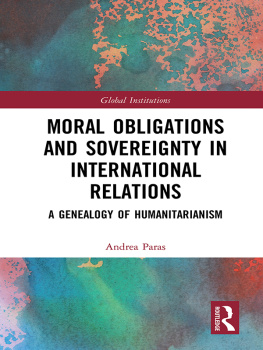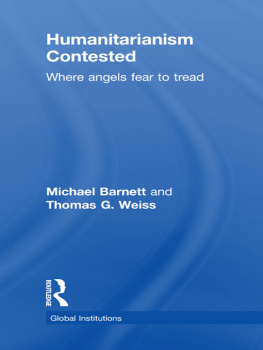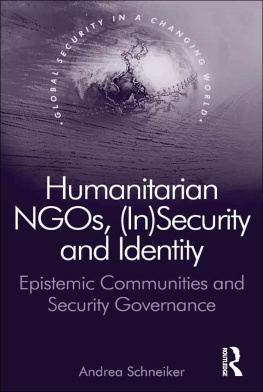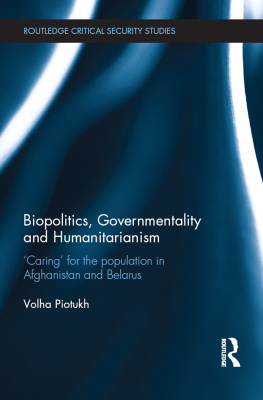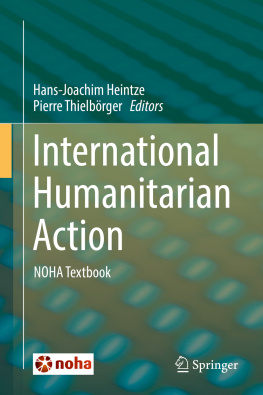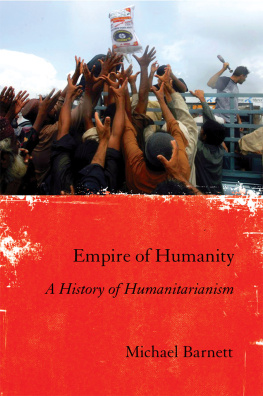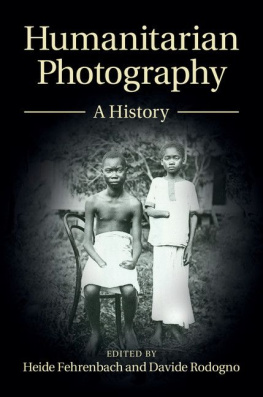
Shaping the Humanitarian World
Providing a critical introduction to the notion of humanitarianism in global politics, tracing the concept from its origins to the twenty-first century, this book examines how the so called international community works in response to humanitarian crises and the systems that bind and divide them.
By tracing the history on international humanitarian action from its early roots through the birth of the Red Cross to the beginning of the UN, Peter Walker and Daniel Maxwell examine the challenges humanitarian agencies face, from working alongside armies and terrorists to witnessing genocide. They argue that humanitarianism has a vital future, but only if those practicing it choose to make it so. Topics covered include:
the rise in humanitarian action as a political tool
the growing call for accountability of agencies
the switch of NGOs from bit players to major trans-national actors
the conflict between political action and humanitarian action when it comes to addressing causes as well as symptoms of crisis.
This book is essential reading for anyone with an interest in international human rights law, disaster management and international relations.
Peter Walker is Director at the Feinstein International Center at Tufts University. Dr Walker founded the World Disasters Report and was one of the founders of the Sphere humanitarian standards.
Daniel Maxwell is Associate Professor at the Friedman School of Nutrition Science and Policy, and a Research Director at Feinstein International Center at Tufts University.
Routledge Global Institutions
Edited by Thomas G. Weiss
The CUNY Graduate Center, New York, USA
and Rorden Wilkinson
University of Manchester, UK
About the Series
The Global Institutions Series is designed to provide readers with comprehensive, accessible, and informative guides to the history, structure, and activities of key international organizations. Every volume stands on its own as a thorough and insightful treatment of a particular topic, but the series as a whole contributes to a coherent and complementary portrait of the phenomenon of global institutions at the dawn of the millennium.
Books are written by recognized experts, conform to a similar structure, and cover a range of themes and debates common to the series. These areas of shared concern include the general purpose and rationale for organizations, developments over time, membership, structure, decision-making procedures, and key functions. Moreover, current debates are placed in historical perspective alongside informed analysis and critique. Each book also contains an annotated bibliography and guide to electronic information as well as any annexes appropriate to the subject matter at hand.
The volumes currently published or under contract include:
The United Nations and Human Rights (2005)
A guide for a new era
by Julie Mertus (American University)
The UN Secretary General and Secretariat (2005)
by Leon Gordenker (Princeton University)
United Nations Global Conferences (2005)
by Michael G. Schechter (Michigan State University)
The UN General Assembly (2005)
by M.J. Peterson (University of Massachusetts, Amherst)
Internal Displacement (2006)
Conceptualization and its consequences
by Thomas G. Weiss (The CUNY Graduate Center) and David A. Korn
Global Environmental Institutions (2006)
by Elizabeth R. DeSombre (Wellesley College)
The UN Security Council (2006)
Practice and promise
by Edward C. Luck (Columbia University)
The World Intellectual Property Organization (2006)
Resurgence and the development agenda
by Chris May (University of Lancaster)
The North Atlantic Treaty Organization (2007)
The enduring alliance
by Julian Lindley-French (European Union Centre for Security Studies)
The International Monetary Fund (2007)
Politics of conditional lending
by James Raymond Vreeland (Yale University)
The Group of 7/8 (2007)
by Hugo Dobson (University of Sheffield)
The World Economic Forum (2007)
A multi-stakeholder approach to global governance
by Geoffrey Allen Pigman (Bennington College)
The International Committee of the Red Cross (2007)
A neutral humanitarian actor
by David P. Forsythe (University of Nebraska) and Barbara Ann Rieffer-Flanagan (Central Washington University)
The Organization for Security and Co-operation in Europe (2007)
by David J. Galbreath (University of Aberdeen)
United Nations Conference on Trade and Development (UNCTAD) (2007)
by Ian Taylor (University of St. Andrews) and Karen Smith (University of Stellenbosch)
A Crisis of Global Institutions? (2007)
Multilateralism and international security
by Edward Newman (University of Birmingham)
The World Trade Organization (2007)
Law, economics, and politics
by Bernard M. Hoekman (World Bank) and Petros C. Mavroidis (Columbia University)
The African Union (2008)
Challenges of globalization, security, and governance
by Samuel M. Makinda (Murdoch University) and F. Wafula Okumu (Institute for Security Studies)
Commonwealth (2008)
Inter- and non-state contributions to global governance
by Timothy M. Shaw (Royal Roads University and University of the West Indies)
The European Union (2008)
by Clive Archer (Manchester Metropolitan University)
The World Bank (2008)
From reconstruction to development to equity
by Katherine Marshall (Georgetown University)
Contemporary Human Rights Ideas (2008)
by Bertrand G. Ramcharan (Geneva Graduate Institute of International and Development Studies)
The United Nations High Commissioner for Refugees (UNHCR) (2008)
The politics and practice of refugee protection into the twenty-first century
by Gil Loescher (University of Oxford), Alexander Betts (University of Oxford), and James Milner (University of Toronto)
The International Olympic Committee and the Olympic System (2008)
The governance of world sport
by Jean-Loup Chappelet (IDHEAP Swiss Graduate School of Public Administration) and Brenda Kbler-Mabbott
Institutions of the Asia-Pacific (2009)
ASEAN, APEC, and beyond
by Mark Beeson (University of Birmingham)
Internet Governance (2009)
The new frontier of global institutions
by John Mathiason (Syracuse University)
The World Health Organization (2009)
by Kelley Lee (London School of Hygiene and Tropical Medicine)
International Judicial Institutions (2009)
The architecture of international justice at home and abroad
by Richard J. Goldstone (Retired Justice of the Constitutional Court of South Africa) and Adam M. Smith
Institutions of the Global South (2009)
by Jacqueline Anne Braveboy-Wagner (City College of New York)
Global Food and Agricultural Institutions (2009)
by John Shaw
Shaping the Humanitarian World (2009)
by Peter Walker (Tufts University) and Daniel Maxwell (Tufts University)
The International Organization for Standardization and the Global Economy (2009)
Next page
